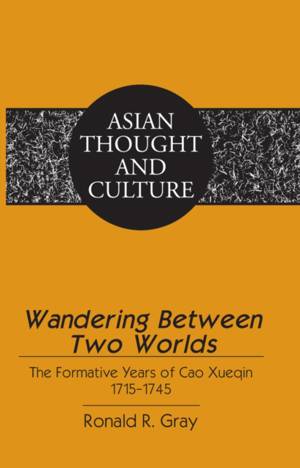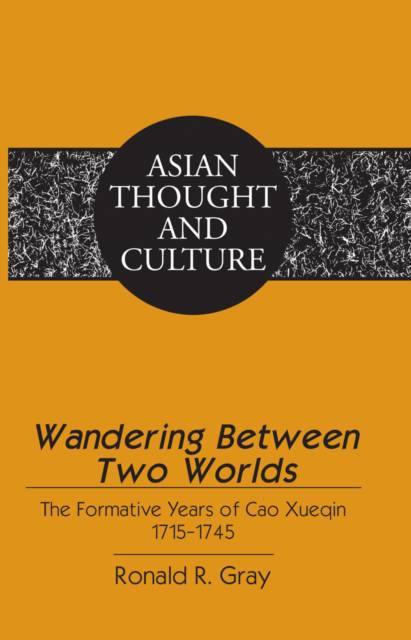
Bedankt voor het vertrouwen het afgelopen jaar! Om jou te bedanken bieden we GRATIS verzending (in België) aan op alles gedurende de hele maand januari.
- Afhalen na 1 uur in een winkel met voorraad
- In januari gratis thuislevering in België
- Ruim aanbod met 7 miljoen producten
Bedankt voor het vertrouwen het afgelopen jaar! Om jou te bedanken bieden we GRATIS verzending (in België) aan op alles gedurende de hele maand januari.
- Afhalen na 1 uur in een winkel met voorraad
- In januari gratis thuislevering in België
- Ruim aanbod met 7 miljoen producten
Zoeken
Wandering Between Two Worlds; The Formative Years of Cao Xueqin 1715-1745
The Formative Years of Cao Xueqin 1715–1745
Ronald R Gray
€ 199,95
+ 399 punten
Omschrijving
Wandering Between Two Worlds: The Formative Years of Cao Xueqin 1715-1745 is a biographical account of the first 30 years of the life of the eighteenth-century Chinese novelist who wrote Honglou meng (Dream of the Red Chamber). It covers Cao Xueqin's life from his birth in Nanjing in 1715 to the time when it is roughly estimated he began to seriously write his massive work. The book attempts to provide a brisk but broad overview of the important familial, social, historical, literary, and intellectual influences on Cao and his decision to write Honglou meng. Wandering Between Two Worlds relies upon extensive interviews done with noted mainland Chinese scholars on the novel, such as Zhou Ruchang, Cai Yijiang, Duan Jiangli, Shen Zhijun, Zhang Qingshan, and Sun Yuming, during the author's eight-year stay in China; recent research done by Western scholars on Qing dynasty literature, gender, qing, philosophy, and education; and insights from the burgeoning field of the New Qing history. This is only the second biography of Cao Xueqin's life to appear in English, and the first to examine in detail his early life and to be written by a non-Chinese. It is intended for students of traditional Chinese literature and culture, as well as general readers interested in the novel and features a special foreword written by the distinguished redologist Zhou Ruchang.
Specificaties
Betrokkenen
- Auteur(s):
- Uitgeverij:
Inhoud
- Aantal bladzijden:
- 244
- Taal:
- Engels
- Reeks:
- Reeksnummer:
- nr. 68
Eigenschappen
- Productcode (EAN):
- 9781433115035
- Verschijningsdatum:
- 24/06/2014
- Uitvoering:
- Hardcover
- Formaat:
- Ongenaaid / garenloos gebonden
- Afmetingen:
- 152 mm x 229 mm
- Gewicht:
- 453 g

Alleen bij Standaard Boekhandel
+ 399 punten op je klantenkaart van Standaard Boekhandel
Beoordelingen
We publiceren alleen reviews die voldoen aan de voorwaarden voor reviews. Bekijk onze voorwaarden voor reviews.









